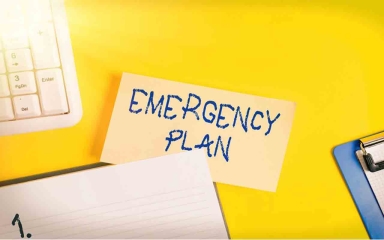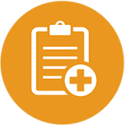Your guide to financial preparedness for disasters
By: Jay Parks

June heralds the height of disaster preparation season, following the reminders of National Wildfire Awareness Month and National Hurricane Preparedness Week. As we move past the tax deadline, businesses and individuals must likewise consider the security and accessibility of their financial documents.
Secure important documents
Start by securing critical documents like tax returns, birth certificates, and property deeds in a waterproof container in a safe location. It's also wise to keep copies in a second location, like a safe deposit box or with a trusted friend in another state. For added security, consider digital backups on encrypted USB drives, ensuring they're accessible even on the go.
Maintain good records
Creating a visual record of your belongings is an excellent precautionary measure. Use your smartphone to take detailed photos or videos of valuable items in your home. This record is extremely useful for insurance claims or tax deductions related to disaster losses. The IRS offers workbooks like Publication 584 to help homeowners and businesses compile comprehensive lists of their possessions. Spending an afternoon documenting your valuables can save you a lot of headaches in the unfortunate event of a disaster.
After a disaster, rebuilding financial records is often necessary for tax purposes, insurance claims, or securing federal assistance. Maintain detailed and accurate documentation of all possessions and financial records; this precision can facilitate quicker and more substantial aid and loan approvals. Knowing ahead of time how to reconstruct these records can dramatically streamline the recovery process.
Stay informed
If you own a business, it's crucial to confirm that your payroll service provider has a fiduciary bond. This bond can protect your company in the event they fail to perform after a disaster. This is also a good time to remind yourself of the IRS's extended deadlines for businesses in disaster-affected areas, which can alleviate some pressure in stressful times.
It's essential to routinely check resources like Ready.gov, IRS.gov, and FEMA.gov for the latest guidelines and strategies for disaster preparedness. These resources provide vital information to help you update your preparedness plan effectively.
Have a plan
Knowing exactly what documents to grab and having them readily accessible can make a big difference in an impending disaster. Consider creating an "emergency financial kit" that could be quickly accessed or taken with you if you need to evacuate.
Beyond securing documents and creating inventories, consider additional protective measures like installing fire and waterproof safes at home or using safety deposit boxes at your bank. For digital security, ensure that all sensitive information stored online is protected by strong passwords and, where possible, two-factor authentication.
Make sure your family members or employees know about the disaster plan. This includes understanding where physical documents are stored and how to access digital files if needed. Regular drills or discussions about these procedures can improve the chances that your plan will be executed smoothly if needed.
By taking these detailed steps now to safeguard your financial documents and valuables, you'll protect your financial health and gain significant peace of mind. Preparation today can prevent unnecessary stress and loss tomorrow, leaving you free to enjoy the summer season with one less worry.



